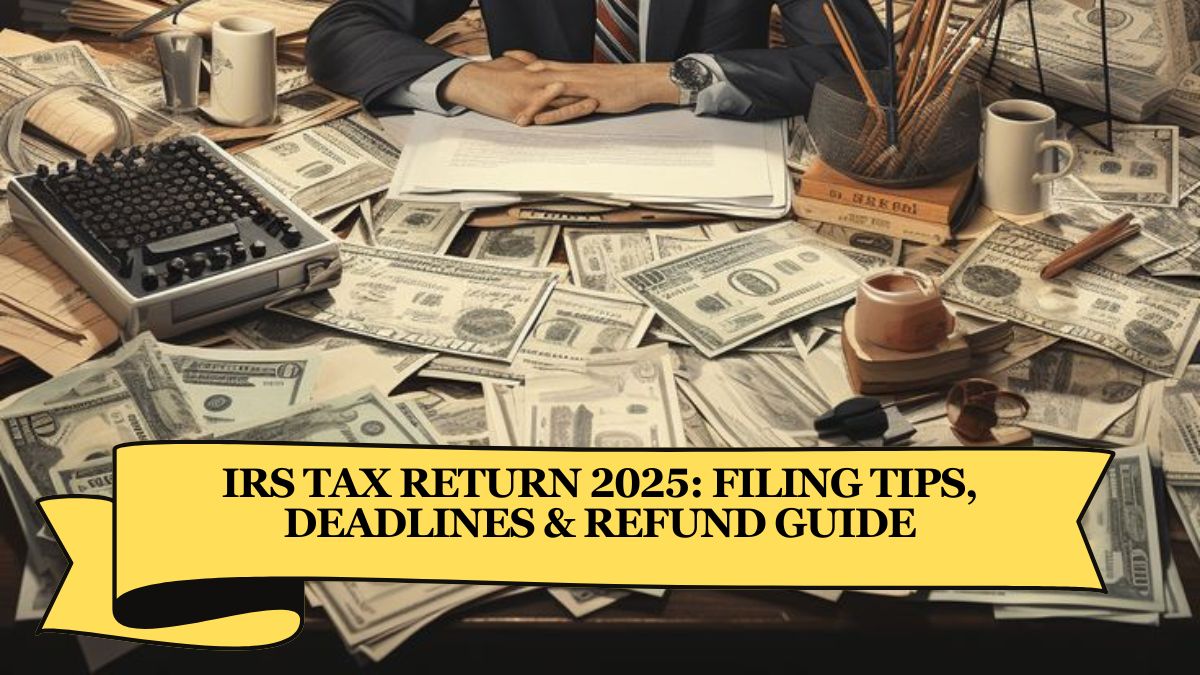Tax season is here again, and it’s time to get your IRS tax return ready. Every year, millions of Americans file their taxes, hoping to either pay what they owe or receive a refund. However, making mistakes can lead to delays or even penalties. To avoid any issues, it’s important to understand the key deadlines, necessary documents, and smart filing strategies. In this guide, we’ll walk you through everything you need to know before submitting your tax return to the IRS.
Key Dates for IRS Tax Return 2025
The IRS officially started accepting tax returns for the 2025 tax season on January 27, 2025. The most important date to remember is April 15, 2025, which is the deadline for filing your federal tax return. If you miss this deadline, you may face penalties unless you request an extension.
For those who qualify for an extension, the new deadline will be October 15, 2025, but keep in mind that an extension only applies to filing—any taxes owed must still be paid by April 15.
Essential Documents You Need to File Your Taxes
Before submitting your tax return, make sure you have all the necessary documents:
- W-2 Form—Provided by your employer, showing your earnings and tax withholdings
- 1099 Forms—For freelancers, independent contractors, and side income earners
- Tax Deduction Receipts—Medical bills, education expenses, or business-related costs
- Social Security Number (SSN)—Required for you and any dependents you are claiming
- Previous Year’s Tax Return—Helps with accuracy and consistency in reporting
Common Mistakes That Could Delay Your Refund
Many taxpayers make small mistakes that can cause delays. Here are some common ones to avoid:
- Incorrect Personal Information—Ensure your name, SSN, and filing status are correct.
- Missing or Incorrect Income Reporting—Double-check all forms to ensure accuracy.
- Math Errors—Even minor calculation mistakes can lead to delays or IRS audits.
- Failing to Sign Your Return— An unsigned return is invalid and won’t be processed.
- Choosing the Wrong Filing Status—Single, married, or head of household—pick the correct one.
How to Maximize Your Tax Refund
If you’re expecting a refund, here’s how to ensure you get the maximum amount:
- Claim All Possible Deductions— Home office, student loan interest, medical expenses, and childcare costs can lower your taxable income.
- Take Advantage of Tax Credits—Earned Income Tax Credit (EITC), Child Tax Credit, and American Opportunity Credit can significantly increase your refund.
- Use Direct Deposit—This is the fastest way to receive your refund from the IRS.
Benefits of Filing Early
Filing your tax return as soon as possible has several advantages:
Faster Refunds—Early filers get their refunds sooner.
Avoiding Last-Minute Stress—Rushing leads to mistakes.
Protection Against Identity Theft—The earlier you file, the less chance someone can fraudulently use your SSN to claim your refund.
IRS FreeFile & Other Assistance Programs
If you have a simple tax situation and make under $73,000 per year, you may qualify for IRS FreeFile, a program that allows eligible taxpayers to file their federal taxes at no cost. Additionally, the Volunteer Income Tax Assistance (VITA) program provides free tax help for low-income individuals, senior citizens, and people with disabilities.
Should You File Taxes If You Have No Income?
Even if you didn’t earn income in 2024, filing a tax return may still be beneficial. You could be eligible for certain credits or receive a refund if taxes were withheld from previous earnings.
What to Do After Filing Your Tax Return
Once you submit your tax return, here’s what to expect:
Check Your Refund Status—Use the IRS “Where’s My Refund?” tool to track your refund.
Be Ready for IRS Correspondence—If there are issues, the IRS may contact you.
Keep a Copy of Your Tax Return—You might need it for future reference or loan applications.
Tax season doesn’t have to be stressful. By preparing ahead of time, gathering the right documents, and filing early, you can avoid common mistakes and get your refund faster. Whether you use FreeFile, hire a tax professional, or do it yourself, staying informed is the key to a smooth filing process. Start early to guarantee a hassle-free tax season!
Must Visit: California State Online

